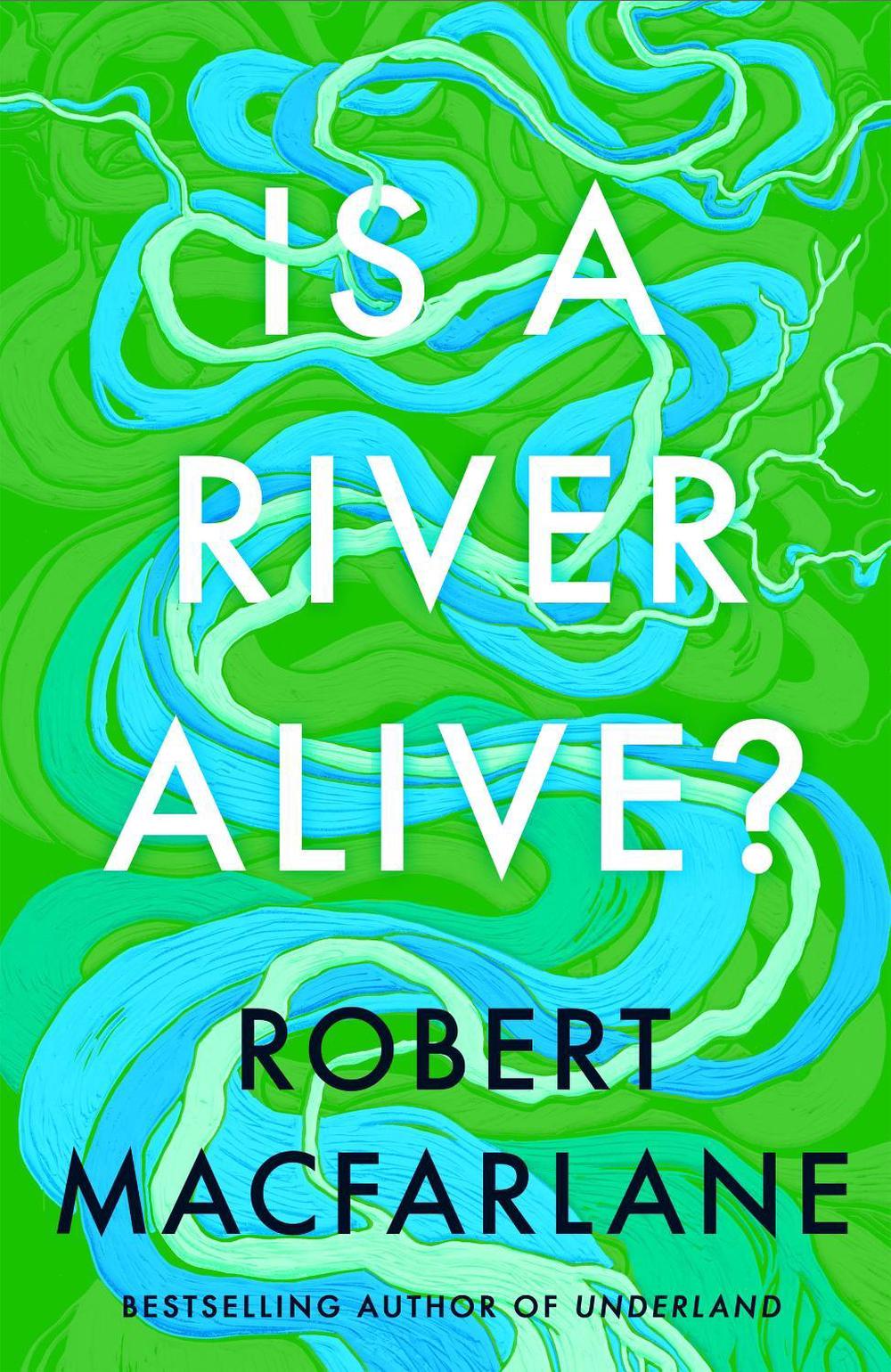
Is a River Alive?
$52.00
- Hardcover
384 pages
- Release Date
12 May 2025
Summary
From the celebrated writer and observer Robert Macfarlane comes this brilliant, perspective-shifting new book—which answers a resounding yes to the question of its title.
At its heart is a single, transformative idea: that rivers are not mere matter for human use, but living beings—who should be recognized as such in both imagination and law. Inspired by the activists, artists, and lawmakers of the young ‘Rights of Nature’ movement, Macfarlane takes the reader on an exhilarating explo…
Book Details
| ISBN-13: | 9780241624814 |
|---|---|
| ISBN-10: | 0241624819 |
| Author: | Robert Macfarlane |
| Publisher: | Penguin Books Ltd |
| Imprint: | Hamish Hamilton Ltd |
| Format: | Hardcover |
| Number of Pages: | 384 |
| Release Date: | 12 May 2025 |
| Weight: | 606g |
| Dimensions: | 242mm x 164mm x 35mm |
You Can Find This Book In
What They're Saying
Critics Review
Everyone who has ever found something to love in a river should find something to love in this book. It is a masterpiece * The Economist *One of the big publishing events (if not the biggest) of 2025 – a new book by Robert Macfarlane … Personal as well as political, it’s almost as certain to shift readerly perspectives as it is to be a bestseller * Observer, ‘Nonfiction to look forward to in 2025’ *The book is a delight … So stirring, so surprising, so acute * The Times *Is a River Alive? is a powerful synthesis of literature, activism and ethics, reshaping the way we perceive the natural world – Alex Preston * Observer *Whether fiction or non-fiction, all great books make you look at the world anew – and Macfarlane’s has changed the way I think about the natural world. In it, he explores the idea that rivers are not objects or resources but living beings, and by the end, that idea feels self-evident … A lyrical, persuasive invitation to look again at how we treat the systems that sustain us – and one of the year’s most necessary books * I Paper, ‘10 Best Books of the Year’ *The narrative pull is strong in this book. I kept wanting to go back to it. Macfarlane has yet again demonstrated his genius as an author in creating a book that is alive, that has personality, that talked to me. I was sad when it ended. It has flowed into my daily thoughts ever since, much like a river continues to flow into the sea * Evening Standard *Beautiful, wild and wildly provocative * New Scientist *Macfarlane confronts the realities of the living, beating heart of the riverine world … With crystalline clarity and force, Macfarlane confronts the gross failure of our existing laws to protect rivers from harm … Such ideas are brought to life by the quality of the writing, the evocation of mood and place, the raw smells and energies that accompany Macfarlane, whether on a gentle walk into a Cambridge wood, or hurtling with mortal speed down a Canadian rapid * Financial Times *Impassioned and invigorating … Macfarlane is erudite and eclectic, and, though charismatic, doesn’t press his presence upon you. His books are adventurous, often involving truly remarkable companions; and at the sentence level no one could accuse him of painting by numbers … * Spectator *Macfarlane is England’s best nature writer, and once again his prose sings, its rhythm mirroring the subject matter. It’s liquid (or riverine) – surging, eddying and magnificently alive * The Spectator, ‘Books of the Year II’ *
About The Author
Robert Macfarlane
Robert Macfarlane’s Sunday Times- and New York Times-bestselling books include Is a River Alive?, Underland, Landmarks, The Old Ways, The Wild Places and Mountains of the Mind, as well as a book-length prose-poem, Ness. His work has been translated into more than thirty languages, won prizes around the world, and been widely adapted for film, music, theatre, radio and dance. He has also written operas, plays, albums, choral works, and films including River and Mountain, both narrated by Willem Dafoe.
Macfarlane has collaborated closely with artists including Olafur Eliasson, and with the artist Jackie Morris he co-created the internationally bestselling books of nature-poetry and art, The Lost Words and The Lost Spells. In 2017, the American Academy of Arts and Letters awarded him the E.M. Forster Prize for Literature, and in 2023 in Toronto he was the inaugural winner of the Weston International Award for a body of work in the field of non-fiction. He is a Fellow of Emmanuel College, Cambridge, and is presently working on a graphic novel re-telling of the Epic of Gilgamesh.
Macfarlane and Morris’s latest project, The Book of Birds, will be published in May 2026.
Returns
This item is eligible for free returns within 30 days of delivery. See our returns policy for further details.




